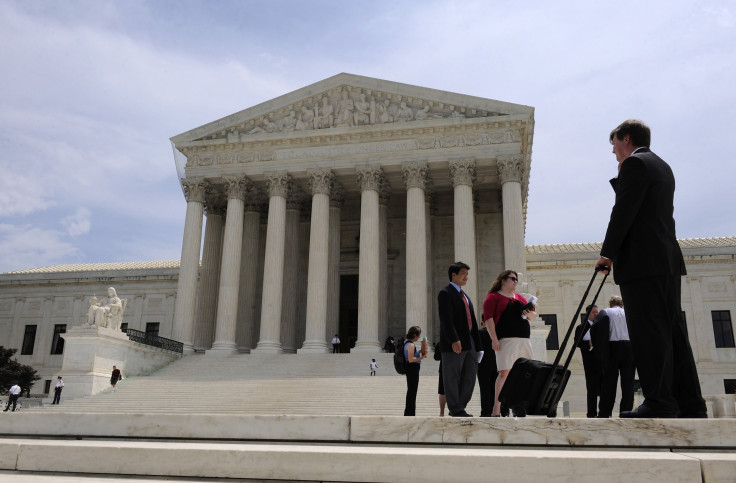Supreme Court Unlikely To Rule On NSA Surveillance Soon - But One Day Privacy Advocates Could Win

With public attention turned to the secret spying programs at the National Security Agency, a privacy rights group is asking the U.S. Supreme Court to halt the collection of metadata on virtually all Americans’ phone calls. Though there is little likelihood the court will accept the petition, there is a strong chance that the NSA’s spying activities will reach the high court in the next few years.
In an emergency petition, the Electronic Privacy Information Center (EPIC) asked the Supreme Court on Monday to stop the metadata collection, authorized under Section 215 of the USA Patriot Act, under the theory that the secret Foreign Intelligence Surveillance (FISA) court did not have the statutory authority to allow the sweeping surveillance program. It’s the latest in a number of lawsuits enabled by documents from confessed leaker Edward Snowden, but experts say it’s unlikely the Supreme Court will let this case jump the line rather than work its way through the lower courts.
EPIC decided to go straight to the Supreme Court because the data collection created “exceptional circumstances” only the nation's highest court could review. They also argued that the lower courts did not have the authority to rule on the orders of the FISA court. But those arguments are unlikely to sway the court.
“There’s not a snowball’s chance in hell that the Supreme Court will entertain this petition,” said William C. Banks, an expert on national security law at Syracuse University College of Law. The court will want to see how the lower courts rule before weighing in, he said.
"Color me deeply skeptical," Stewart A. Baker, a partner at Steptoe & Johnson LLP in Washington, D.C., and former assistant secretary for policy at the Department of Homeland Security, wrote in an email. "This sounds more like a stunt than serious litigation. The Supreme Court doesn’t take cases just because an issue is in the newspapers and civil liberties organizations want the Court to review what the government is doing. There are procedures by which cases can come to the Supreme Court on this issue in the ordinary way -- through the appeals courts. The Court depends on such procedures to make sure issues are properly ventilated before the Court reviews them, and it will be highly reluctant to take a case of this importance without following the usual process."
Banks disagreed with EPIC’s contention that the lower courts did not have the power to halt the metadata collection, because seeking injunctive relief against an illegal government action is something district courts do all the time. “You’re essentially not asking them to review an order so much as you’re trying to enjoin the government from enforcing an order the court has made,” Banks said, arguing that the legal distinction is an important one.
But Banks did say that the lawsuits against the phone metadata collection, including an American Civil Liberties Union suit challenging the same collection program, are strong cases that could ultimately find their way to the Supreme Court -- and even win when they get there. Like the ACLU, EPIC is a customer of Verizon, which Snowden’s documents proved was handing over metadata to the government, and therefore will have standing to challenge some of the NSA's surveillance activities. As the International Business Times previously reported, the NSA leaks have made the Patriot Act vulnerable to legal challenge by resolving the standing hurdle advocates faced without proof their phone data was being collected.
“I think this particular challenge on the metadata is an interesting one and it’s probably one that’s more likely than any in a long time to eventually get to the [Supreme] Court, because it has not ruled on Fourth Amendment protections for this metadata stuff,” Banks said.
According to Banks, if the Supreme Court one day agrees to rule on the collection, it would likely review the relevant part of the Patriot Act itself, rather than the FISC’s decisions that allowed the government to move ahead with its dragnet programs. And they would have a strong case.
“It’s Congress that created this authority and if it’s been misapplied by the government the court could say so,” Banks said. “And I think there’s a fair chance that that would happen because as many people have said, and others have reported, that the Section 215 was written for discreet individualized records and not this kind of scooping up of metadata.”
© Copyright IBTimes 2024. All rights reserved.





















